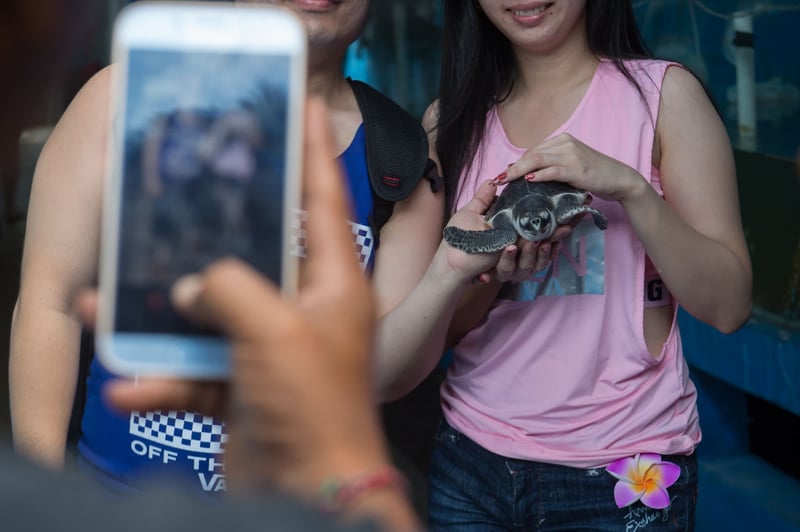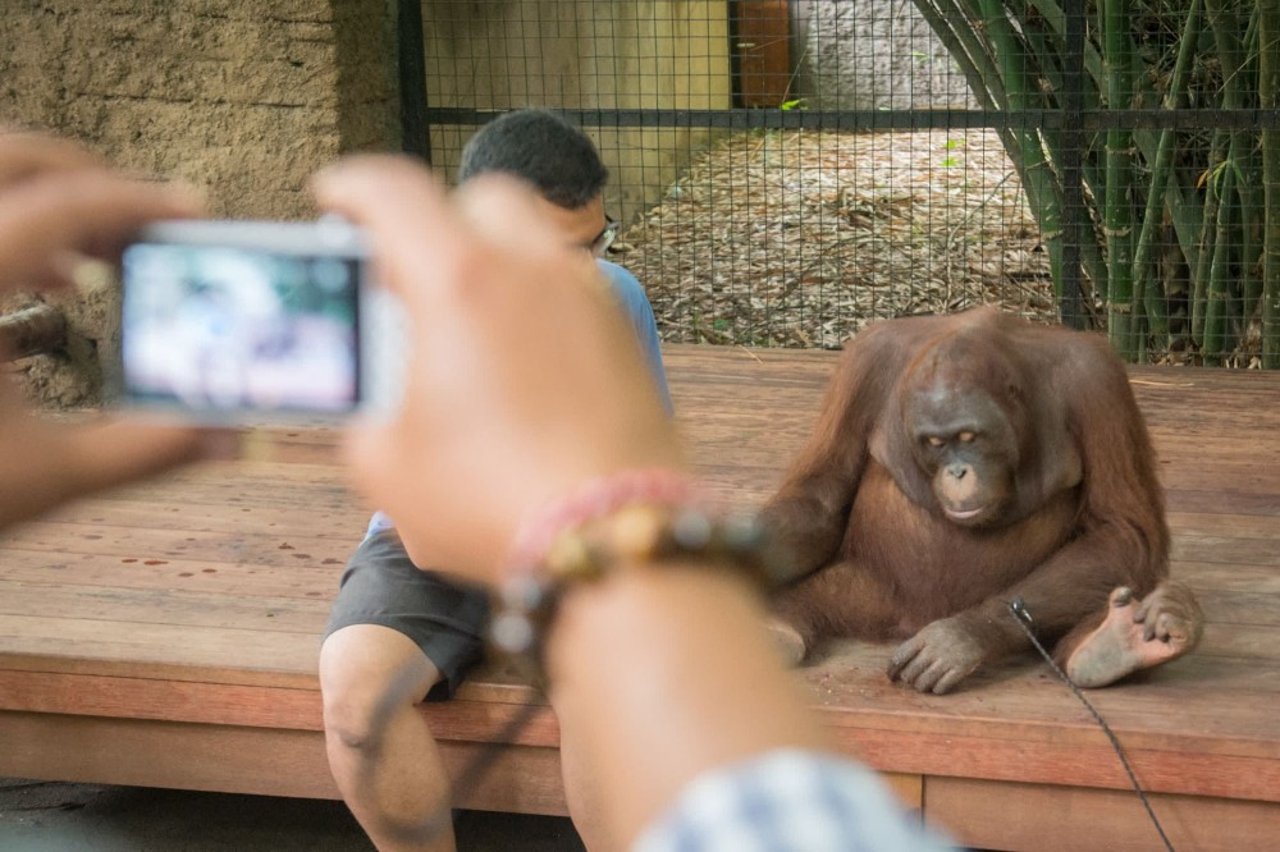
Bali Horror: wildlife tourist attractions are living hell for animals
News
Not a single wildlife tourism entertainment venue in Bali, Lombok and Gili Trawangan with captive elephants, tigers, dolphins or civet cats meets even the basic needs of wild animals
We recently investigated 26 wildlife tourism venues that house 1,500 wild animals, including elephants, dolphins and orangutans. Our report, Wildlife Abusement Parks, details the horrifying results.
Bali is a popular travel destination; more than five million tourists visited the island in 2017. But despite being an island paradise for people, our report paints a bleak picture of the conditions these captive wild animals are forced to endure day-in, day-out. Almost all of these animals will spend the rest of their lives suffering for tourists.
Huge scale of suffering
Some of our most disturbing findings reveal that:
- All dolphins were kept in severely inadequate conditions – one small pool, around three metres deep, housed four bottlenose dolphins
- Dolphins at one venue had their teeth filed down or removed entirely
- Every elephant venue offered rides. Elephants suffer a cruel and intensive training process that involves severe and traumatising restraint and pain
- All venues with orangutans offered selfie experiences. Forced to entertain queues of tourists, many of these animals lacked freedom of movement, opportunities for social interaction and any stimulating activities
- 80% of venues with primates didn’t meet the basic needs of captive wild animals
- 100% of venues with captive elephants, tigers, dolphins or civet cats failed to meet basic needs of wild animals
An orangutan forced to pose for tourists
Grotesque and horrific conditions
Steve McIvor, our CEO, said: “It’s a tragedy that Bali, such a beautiful destination for tourists, forces its captive wild animals to endure such grotesque and horrific conditions.
Behind the scenes, wild animals are being taken from their mothers as babies or bred in captivity to be kept in filthy, cramped conditions, or repeatedly forced to interact with tourist for hours on end.
Bali is an idyllic paradise and its economy relies on the millions of tourists who travel there each year. Sadly, until Bali improves animal welfare at these dreadful venues, we are urging tourists to avoid them."
What you can do
“If you can ride, hug or have a selfie with wild animal, then it’s cruel - don’t do it, no matter how many ‘likes’ it will get on social media.
We’re encouraging holidaymakers to boycott travel companies that promote and support cruel venues. Travel companies have a responsibility to urgently review their Bali offerings to ensure they’re not supporting these appalling establishments.
In the past, when our teams have investigated animal welfare conditions at other leading holiday destinations, I’ve always been able to recommend non- exploitative venues with good welfare standards. It’s horrendous that there isn’t one venue I can recommend on Bali, Lombok and Gili Trawangan.”
To protect wild animals, we have convinced nearly 200 travel companies to stop offering elephant rides and shows in travel packages.
